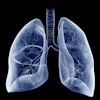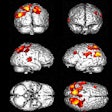The U.S. Centers for Medicare and Medicaid Services (CMS) proposed a new reimbursement plan July 10 for diagnostic PET scans that would provide separate payments for radiopharmaceuticals, as well as an extra payment for hospitals when they use domestically produced technetium-99m (Tc-99m).
Currently, the CMS bundles Medicare payments for PET radiotracers for diagnosing disease as part of the packaged cost of imaging procedures in hospital outpatient settings. However, its proposed rule for 2025 includes a refinement that will “improve the accuracy of the overall payment amounts by paying separately for any diagnostic radiopharmaceutical with a per day cost greater than $630 and removing their costs from the payment amounts for the nuclear medicine tests,” the CMS said.
The new plan would likely increase patient access to these important imaging studies.
In an interview with AuntMinnie.com in response to the news, Society for Nuclear Medicine and Molecular Imaging (SNMMI) President Cathy Cutler, PhD, said that under the current payment system, hospitals simply aren’t reimbursed at levels that cover what it costs to make diagnostic PET radiopharmaceuticals.
“As you can imagine, if you’re running a hospital or business, you can’t really afford to make a drug and not get reimbursed for what it costs you,” she said.
The rule change comes ahead of any action on the Facilitating Innovative Nuclear Diagnostic (FIND) Act and may reflect a move to keep abreast of sharply increasing needs for PET tracers used in Alzheimer’s disease and prostate cancer, Cutler suggested. Importantly, the proposed rule should ultimately increase access for patients to these crucial nuclear medicine exams, as an increase in payment for the PET agents will lead to more hospitals offering the tests, she added.
Medical technology trade association Advanced Medical Technology Association (AdvaMed) also said the CMS proposal is welcome news.
“Achieving separate payment for diagnostic radiopharmaceuticals continues to be a top priority for AdvaMed – millions of patients and their family members applaud this positive step in the right direction,” said Pat Hope, executive director of AdvaMed’s imaging division, in a request for a comment.
The association will be working with all stakeholders in support of the proposal before it is finalized at the beginning in 2025, Hope added.
Add-on payment
In addition, the proposed rule includes an add-on payment for domestically produced Tc-99m, one of the most widely used SPECT radiotracers, which the CMS said addresses a payment inequity among outpatient hospital providers.
Historically, foreign molybdenum-99 (Mo-99) production has been subsidized by foreign governments, resulting in prices below the true cost of production. These artificially low, foreign government-subsidized prices have created a disincentive for domestic investments in Mo-99 production infrastructure and a barrier to entry for new producers, the CMS said.
“We propose to address this payment inequity in this rule by establishing a new add-on payment of $10 per dose for radiopharmaceuticals that use Tc-99m derived from domestically produced Mo-99 starting on January 1, 2026,” the CMS said.
Mo-99 is the source material for Tc-99m, which is used in an estimated 40,000 nuclear medicine diagnostic exams each day in the U.S.
The CMS said it believes the $10 add-on payment for domestically produced Tc-99m will help cover the anticipated higher cost of the products.
The publication of the proposed rule (CMS 1809-P) opens a 60-day comment period, which will end on September 9, 2024. The final rule will then be issued in early November, according to the CMS.



















